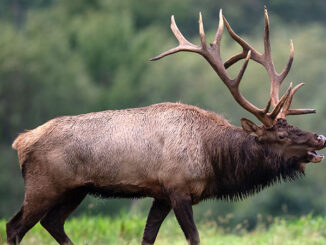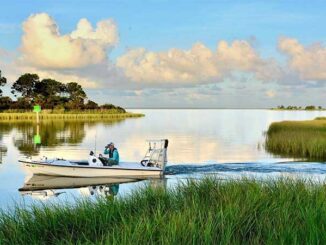
Put these 10 teal tips to work, and you’ll be enjoying bacon, eggs and pancakes while the sun’s still yawning.
God loves paradoxes. I’m convinced of it. I have a close friend named Dean Adamek who abandoned American culture a decade ago, and moved his family to Guadalupe, Mexico, to run an orphanage, Rancho 3M.
His family has none of the creature comforts that we in America simply can’t live without, but they are the happiest people you could ever possibly meet.
Dean gave up his life, and in so doing, he found it.
The outdoor world is rich with paradoxes as well.
Consider this question: Which is the better route for protecting a species of animal — granting it endangered status and minimizing human interaction with it or opening a hunting season for it?
If you answered the latter, go to the front of the class and receive your gold star.
Clearly the former doesn’t work.
Steven D. Levitt and Stephen J. Dubner in the book Freakonomics discuss the hidden impacts of many absurd laws added to our books at the request of do-gooders.
One recent column by the authors involves the red-cockaded woodpecker, which inhabits the old-growth pine forests of Eastern North Carolina. Whenever such a bird is discovered on a landowner’s property, the law requires that tract of woods to be left undisturbed and in its native state. This effectively makes an individual’s land worthless to him. He can’t harvest the timber, and he can’t build on it.
All he does is pay taxes for land he can’t use.
So what do North Carolina landowners do whenever they discover a red-cockaded woodpecker on their land? They call their local timber crew in to come clear-cut the property. That way, they get some money from their land, and they force the woodpeckers to go somewhere else, which gives the landowners free use of their land, at least until it grows back up and other red-cockaded woodpeckers move in.
The radical mindset that says government has the right to effectively seize someone’s property without recompense, all to save a bird, is actually doing more to harm red-cockaded woodpecker habitat than if no such law existed.
The same applies to the Interior Department’s declaration that polar bears are threatened. Now, U.S. citizens are banned from bringing polar bear skins into the country. As Humberto Fontova points out in a townhall.com column, the ruling ensures that more polar bears will be killed every year.
How? Well, in the past Inuit hunters in northern Canada would sell their polar-bear tags to wealthy American hunters, who were sometimes successful, sometimes not. But now, the natives of the region will have no one to sell their tags to, so they’ll have to fill them themselves. Nearly every tag will be filled now.
Hunters preserve their cherished game species; they don’t destroy them. It’s been proven time and time again.
Nan Huff of the LDWF stated in the May DMAP newsletter that many states have banned hog-hunting to discourage expansion of the animals.
Deer, turkeys and ducks have all flourished over the last century because we’ve hunted them within reasonable limits. We hunters throw money at the game species we love, and will work hours in withering summer sun to preserve their habitat.
Like most liberal laws, those designed to protect animals do more harm than good.

